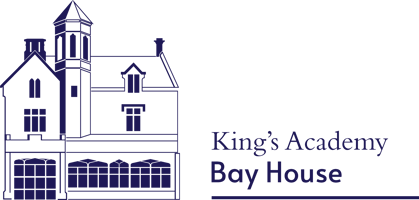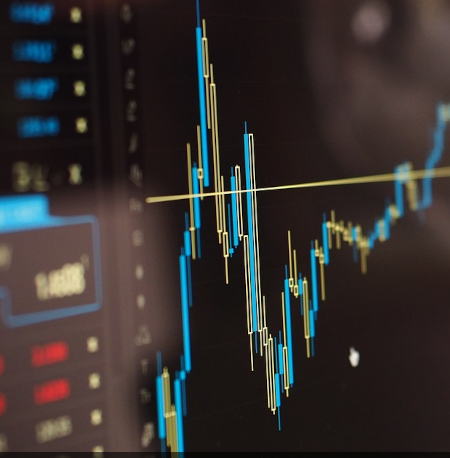Business and Economics
Business is for pupils who want to learn more about and are interested in the core business concepts and how businesses work, from start-ups to multinational companies. Economics looks at the broader perspective of how markets, firms and governments interact to work towards economic efficiency.
The Business and Economics courses aim to develop pupils’ awareness of the importance of enterprise and commerce in developing and sustaining a healthy economy. A range of practical and transferable employability skills are embedded in all courses alongside the academic qualifications themselves. Courses explore everything business-related from starting and building up a business and developing marketing plans to understanding business from an operational and global perspective. In economics, pupils will look at the nature and purpose of economic activity, studying how markets and the economy works.

We offer a choice of business or economic subjects at KS5 which progress naturally from the KS4 curriculum.
Key Stage 3
In Year 9, pupils study business as part of a six week study programme in which they will develop a business idea based on a start up fund of £10. During the challenge, pupils will work together to design a product or service, learn how to research the market and test their ideas, use multimedia to design logos, marketing materials and websites, and write a persuasive business plan.
All pupils and students from any year group have the opportunity to participate in the Enterprise Challenge Club which meets weekly to develop business ideas and write plans which can be entered into the 10X Challenge national competition which runs annually in March.
Key Stage 4
Business GCSE (Edexcel)
GCSE Business is a two year course with final exams at the end of year 11. In Year 10, pupils will study Theme 1 –Investigating small business, which focuses on the techniques and skills required to develop business ideas, set up and run a business through theoretical concepts which are applied to real business scenarios. Content includes entrepreneurship, risk and reward. Business planning, financial forecasting and marketing concepts. Theme 1 represents 50% of the total qualification in the final assessment.
In year 11, pupils study theme 2 – Building a business. This section predominantly investigates how we grow a business, and includes themes such as globalisation and business ethics, alongside functional theory exploring finance, marketing, operations and human resource management. Theme 2 represents the final 50% of the end point examinations.
For further information please have at look at the specification overview https://qualifications.pearson.com/content/dam/pdf/GCSE/Business/2017/specification-and-sample-assessments/GCSE_Business_Spec_2017.pdf
Economics GCSE
GCSE Economics is a two year course with final exams at the end of year 11. In Year 10, pupils will study how markets work, the nature and purpose of economic activity, factors of production, how resources are allocated using a market mechanism and how prices are determined.
In Year 11, pupils are introduced to the wider economy, focusing on the main economic groups; consumers, producers and the government. The significance of interest rates, money and financial markets is covered, alongside the role of government in managing the economy through macroeconomic policies. Pupils will also explore global economics and the moral, ethical and sustainability issues which underpin all aspects of managing an economy.
GCSE Economics is externally assessed through Paper 1 and Paper 2 at the end of Year 11, with each paper representing 50% of the overall award.
For further information, please have a look at the specification, which can be found here: https://www.ocr.org.uk/Images/338513-specification.pdf.
Key Stage 5
There are 2 further pathways that pupils can opt to choose from at A level. Both are extremely successful and popular courses. We offer both Business and Economics at A level.
Business
Pupils investigate different types and sizes of organisations in various business sectors in local, national and global contexts. Pupils also learn how to analyse and interpret financial indicators, as well as calculate, use and understand a variety of accounting ratios. This qualification provides a solid foundation for a wide range of higher education courses such as business management, accountancy, marketing or international business. Students can also progress to a wide range of careers ranging from banking, sales, product management and general management to working in public sector organisations or charities.
Economics
Pupils will consider the different approaches that may be used by a country’s policy-makers to suggest solutions to real problems. Pupils will also learn how to analyse and interpret economic indicators, study the impact of business and economic activity on markets, consumers and firms as well as calculate, use and understand a variety of accounting ratios. This qualification provides a solid foundation for a wide range of higher education courses including Economics, Finance, Accounting and Management. Economics offers a range of career opportunities including Economist, Civil Service, Accountancy, Journalism, Stockbroker and Financial services.
Pupils will study how consumers, firms, and governments make decisions about allocating resources, examining both small-scale (microeconomic) and large-scale (macroeconomic) economic activities. In microeconomics, they will study markets, consumer behaviour, competition, and firm behaviour. In macroeconomics, they will cover economic indicators including inflation, GDP, exchange rates, and interest rates as well as policy responses to broader issues. They will also learn to analyse data and calculate accounting ratios, vital for understanding business and economic health. This qualification provides a strong foundation for higher education in Economics, Finance, Accounting, and Management, leading to careers in economics, civil services, accountancy, journalism, financial markets, insurance, and financial services.
If you wish to find out more information about either of these A level options please have a look at our Sixth Form page https://kgabayhouse.uk/sixth-form/course-information/.
Check out the comments below for feedback form our learners:
‘Economics is a very diverse subject that involves looking at numerous different points of view…and the teachers provide interactive lessons’ (GT & HC, A Level Economics)
‘Economics gives me a better understanding of real world problems and is a good skill to have when you leave school, I learn a lot in our lessons’ (Rudy, GCSE Economics)
‘I like finding out how money works and what makes products worth more with factors they depend on’ (Max, GCSE Economics)
‘I enjoy my economics lessons, I find that everything is explained in a nice way that is easily understandable’
‘Business is an interesting subject that makes me think about real world scenarios and how I can apply the knowledge I gain for myself’ (AD, A Level Business)
‘I enjoy Business because it teaches us how strong global economies can be really effective’ (JC, A Level Business)
‘Business GCSE is enjoyable…from the beginning the work is set out and organised so it is easy to understand and complete’.
‘I like how it is going to benefit me in the future, teaching me how inflation works and what interest and tax is’ (GCSE Business)


